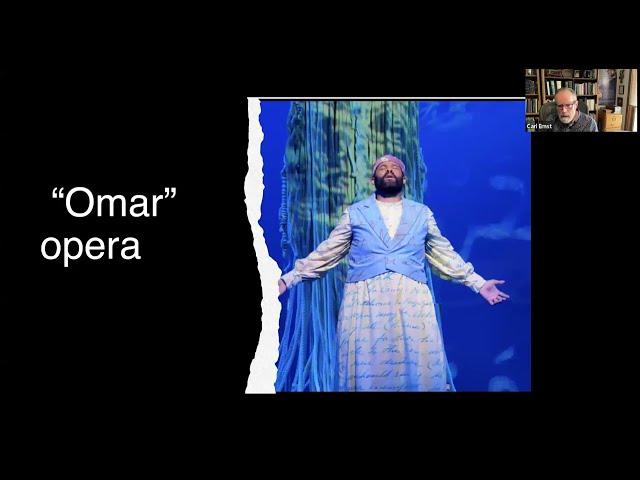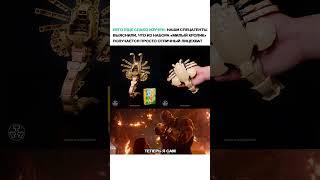
Carl Ernst and Mbaye Lo, Islam, Arabic, and slavery in Omar ibn Said’s America
Carl Ernst and Mbaye Lo, Islam, Arabic, and slavery in Omar ibn Said’s America.
Centre for the Study of Islam, Exeter. Monday Majlis Online on the 30th of October.
Abstract
Omar Ibn Said (1770-1863), a West African Muslim scholar who was enslaved in North Carolina for over half a century, left behind a small body of Arabic writings that became a source of both wonder and incomprehension. What did these writings mean? The argument of this book is that Omar’s writings were systematically ignored, distorted, and dismissed by the defenders of racism, slavery, and white Christian supremacy. This book for the first time identifies the Arabic texts quoted by Omar. It restores the Islamic and West African meanings of Omar’s texts, in a way that illuminates contemporary American debates on racism, demonstrating that Islam is an American religion, and Arabic is an American language. https://uncpress.org/book/9781469674674/i-cannot-write-my-life/
Bios
Carl W. Ernst is a scholar who writes on critical issues of Islamic studies (especially West and South Asia), premodern and contemporary Sufism, and Indo-Muslim culture. He has received research fellowships from the Fulbright program, the National Endowment for the Humanities, and the John Simon Guggenheim Foundation, and he has been elected a Fellow of the American Academy of Arts and Sciences. He studied comparative religion at Stanford University (A.B. 1973) and Harvard Law University (Ph.D. 1981). He is the William R. Kenan, Jr., Distinguished Professor of Religious Studies Emeritus at the University of North Carolina at Chapel Hill.
https://religion.unc.edu/_people/full-time-faculty/ernst/ https://carlwernst.web.unc.edu/
Mbaye Lo is associate professor of the practice of Asian and Middle Eastern studies and international comparative studies at Duke University.
Originally from Senegal, Lo completed his undergraduate and graduate training in classical Arabic language and literature at the International University of Africa, Khartoum and Khartoum International Institute for Arabic Language, Sudan. He also received an MA in American history from Cleveland State University where he also earned his PhD from from the Maxine Goodman Levin College of Urban Affairs with a dissertation on Re-inventing Civil Society-Based Governance in Africa: Theories and Practices.
Professor Lo is a recipient of several awards including the National Humanities Center fellowship, the American Council of Learned Societies Fellowship on Luce/ACLS Program in Religion, Journalism & International Affairs, DukeEngage Program Director Award, and Duke University Alumni Distinguished Undergraduate Teaching Award.
Professor Lo is the author and editor of nine books in both English and Arabic that examine the intersection of intellectual and social discourse of Arabic/Islamic and African cultures. He has written widely on political Islam, Arabic literary traditions in West Africa, and ideas of civil society and governance.
https://scholars.duke.edu/person/mbaye.lo
In the spirit of the label ‘Majlis’ and also to make the talks even more interesting, our speakers present the topic discussed as embedded in their own journey. You can watch the previous Majlises here https://www.youtube.com/playlist?list=PL8YRkUahFj_81oJzCSDLTx4kVQQgeHLc- , but we don’t record the Q&A in order to keep the discussion free. Please come and enjoy the talks and the discussions : ) If you’d like to be included in the CSI (Centre for the Study of Islam (Institute of Arab and Islamic Studies, University of Exeter) mailing list, please contact the CSI Director, Istvan T Kristo-Nagy ([email protected]).
We’ll be happy to welcome you!!
Istvan https://arabislamicstudies.exeter.ac.uk/staff/kristo-nagy/
Centre for the Study of Islam, Exeter. Monday Majlis Online on the 30th of October.
Abstract
Omar Ibn Said (1770-1863), a West African Muslim scholar who was enslaved in North Carolina for over half a century, left behind a small body of Arabic writings that became a source of both wonder and incomprehension. What did these writings mean? The argument of this book is that Omar’s writings were systematically ignored, distorted, and dismissed by the defenders of racism, slavery, and white Christian supremacy. This book for the first time identifies the Arabic texts quoted by Omar. It restores the Islamic and West African meanings of Omar’s texts, in a way that illuminates contemporary American debates on racism, demonstrating that Islam is an American religion, and Arabic is an American language. https://uncpress.org/book/9781469674674/i-cannot-write-my-life/
Bios
Carl W. Ernst is a scholar who writes on critical issues of Islamic studies (especially West and South Asia), premodern and contemporary Sufism, and Indo-Muslim culture. He has received research fellowships from the Fulbright program, the National Endowment for the Humanities, and the John Simon Guggenheim Foundation, and he has been elected a Fellow of the American Academy of Arts and Sciences. He studied comparative religion at Stanford University (A.B. 1973) and Harvard Law University (Ph.D. 1981). He is the William R. Kenan, Jr., Distinguished Professor of Religious Studies Emeritus at the University of North Carolina at Chapel Hill.
https://religion.unc.edu/_people/full-time-faculty/ernst/ https://carlwernst.web.unc.edu/
Mbaye Lo is associate professor of the practice of Asian and Middle Eastern studies and international comparative studies at Duke University.
Originally from Senegal, Lo completed his undergraduate and graduate training in classical Arabic language and literature at the International University of Africa, Khartoum and Khartoum International Institute for Arabic Language, Sudan. He also received an MA in American history from Cleveland State University where he also earned his PhD from from the Maxine Goodman Levin College of Urban Affairs with a dissertation on Re-inventing Civil Society-Based Governance in Africa: Theories and Practices.
Professor Lo is a recipient of several awards including the National Humanities Center fellowship, the American Council of Learned Societies Fellowship on Luce/ACLS Program in Religion, Journalism & International Affairs, DukeEngage Program Director Award, and Duke University Alumni Distinguished Undergraduate Teaching Award.
Professor Lo is the author and editor of nine books in both English and Arabic that examine the intersection of intellectual and social discourse of Arabic/Islamic and African cultures. He has written widely on political Islam, Arabic literary traditions in West Africa, and ideas of civil society and governance.
https://scholars.duke.edu/person/mbaye.lo
In the spirit of the label ‘Majlis’ and also to make the talks even more interesting, our speakers present the topic discussed as embedded in their own journey. You can watch the previous Majlises here https://www.youtube.com/playlist?list=PL8YRkUahFj_81oJzCSDLTx4kVQQgeHLc- , but we don’t record the Q&A in order to keep the discussion free. Please come and enjoy the talks and the discussions : ) If you’d like to be included in the CSI (Centre for the Study of Islam (Institute of Arab and Islamic Studies, University of Exeter) mailing list, please contact the CSI Director, Istvan T Kristo-Nagy ([email protected]).
We’ll be happy to welcome you!!
Istvan https://arabislamicstudies.exeter.ac.uk/staff/kristo-nagy/
Комментарии:
Carl Ernst and Mbaye Lo, Islam, Arabic, and slavery in Omar ibn Said’s America
Institute of Arab and Islamic Studies (IAIS)
TMS - Busch R5 Pump Maintenance
TotalMaintSol
Gaydus knight
arabguuy
Diggy's Adventure [4º EVENTO JOGADORES] #02 Planeta dos zumbis - Completo - Português BR
Diggy's Adventure Brasil Fanpage
洗肚臍 #醫療 #開刀房日常 #麻姊日常 #大家記的洗肚臍 #肚臍 #結石
那個麻姐-自然瘦身專家
Бразильская кашаса: как пить и чем закусывать.
Рассказы кависта
Maagiline Maa
Ott Lepland - Topic



![Diggy's Adventure [4º EVENTO JOGADORES] #02 Planeta dos zumbis - Completo - Português BR Diggy's Adventure [4º EVENTO JOGADORES] #02 Planeta dos zumbis - Completo - Português BR](https://smotrel.cc/img/upload/VTM5SVFSbm8xNTY.jpg)






















